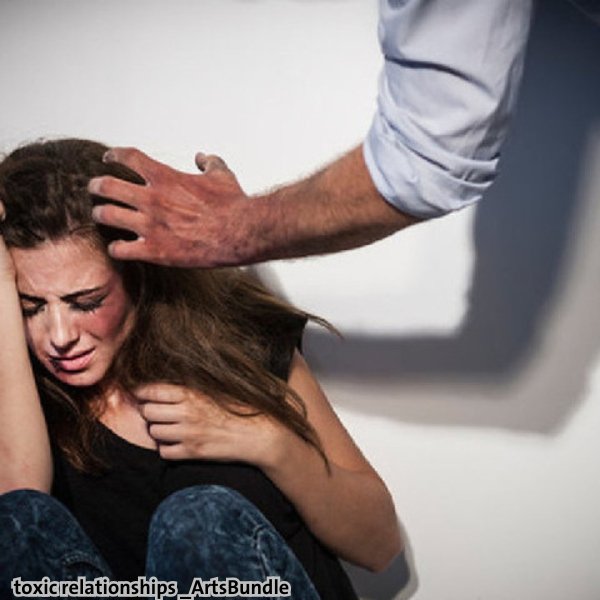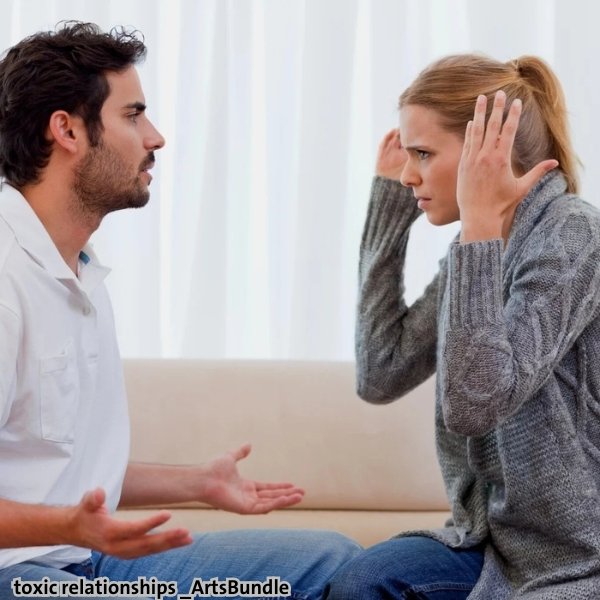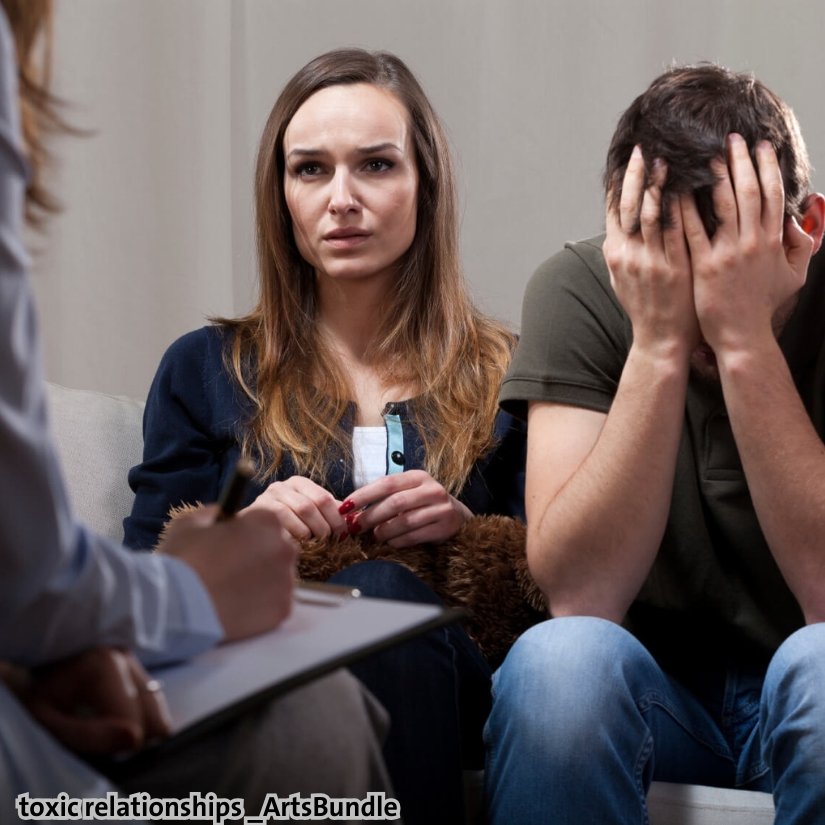Toxic relationships can be incredibly damaging to your spirit. They sap your energy, distort your perspective, and can create deep emotional and physical wounds that linger. Whether these relationships exist between partners, friends, or family, they negatively impact everyone involved. In this guide, we will delve into the reasons behind toxic relationships, the different forms they take, the signs to look out for, and effective strategies to heal and move forward.
Causes of Toxic Relationships

The Anxiety of Being Alone
The anxiety surrounding solitude is a significant force that can push individuals into unhealthy partnerships. This anxiety can arise from various origins, such as:
- Childhood influences: Growing up in an environment where a child feels insecure or neglected can lead to a profound fear of solitude. As adults, this may translate into a constant need for companionship, even if it’s detrimental.
- Cultural expectations: Many societies place a high value on being in a relationship, which can pressure individuals to remain in partnerships, even when they are unhappy or harmful.
- Attachment patterns: Those with anxious attachment styles often fear abandonment and may cling to their partners due to the dread of being alone.
Excessive Reliance
When two individuals in a relationship become excessively reliant on one another, it can foster a toxic environment. This can occur for several reasons, including:
- Financial reliance: If one partner depends on the other for financial support, it can create challenges in leaving the relationship, even if it’s unhealthy.
- Emotional reliance: When one partner looks to the other for all their emotional support, it can hinder the development of healthy connections with others.
- Co-dependency: This behavior pattern occurs when two individuals become so emotionally intertwined that they struggle to function independently.
Exposure to Abuse
Individuals who have encountered violence during their childhood or in previous relationships are more likely to accept or replicate such behaviors in their partnerships. This can be attributed to several factors, including:
- Learned helplessness: Experiencing abuse can lead someone to feel powerless to change their circumstances, making it challenging to exit an abusive relationship.
- Trauma bonding: This psychological phenomenon occurs when abuse victims form strong emotional ties with their abusers, complicating their ability to leave the relationship.
Low Self-Esteem
- People with low self-esteem are likelier to settle for less than they deserve in relationships. This is because they believe they are not worthy of love or respect.
- As a result, they may tolerate abusive or controlling behavior from their partners.
Types of Toxic Relationships

Abusive Relationships
Abusive relationships are characterized by a pattern of behavior that involves the use of physical, sexual, emotional, or financial abuse to control and dominate a partner.
- Physical Abuse: This includes any behavior that inflicts physical harm on another person. It can range from slapping and hitting to more serious forms of violence, such as strangulation or assault with a weapon.
- Sexual Abuse: This includes any unwanted sexual contact, including forced sexual intercourse, sexual touching, or sexual harassment. It can also involve non-contact forms of abuse, such as exposure or voyeurism.
- Emotional Abuse: This is a form of abuse that is often harder to recognize than physical or sexual abuse. It involves the use of words or actions to control, manipulate, or intimidate a partner.
Emotional abuse can take many forms, including:
- Gaslighting: This is a form of manipulation in which the abuser makes the victim question their reality. For example, the abuser may deny that they said or did something, even if there is evidence to the contrary.
- Shaming and blaming: The abuser may constantly criticize and put down their partner, making them feel worthless and ashamed.
- Isolation: The abuser may try to isolate their partner from friends and family, making them more dependent on the abuser.
- Threats and intimidation: The abuser may threaten to harm the victim or their loved ones or damage their property.
Financially Toxic Relationships
Financially toxic relationships are characterized by a pattern of behavior in which one partner controls or manipulates the other’s finances. This can include:
- Financial control: The abuser may restrict the victim’s access to money or financial resources or make all the financial decisions in the relationship.
- Economic abuse: The abuser may sabotage the victim’s ability to earn an income, for example by preventing them from getting a job or going to school.
- Debt: The abuser may run up debt in the victim’s name or force the victim to take on debt that they cannot afford.
- Also read: Top 10 Shocking Causes of Hair Loss Revealed
Other Types of Toxic Relationships

In addition to the types of toxic relationships mentioned above, other types of toxic relationships can be harmful. These include:
Narcissist relationships
- Narcissists are people who have an inflated sense of self-importance and a need for admiration.
- They can be emotionally abusive and manipulative, and they often have difficulty maintaining healthy relationships.
Codependent relationships
- Codependency is a pattern of behavior in which one person becomes overly dependent on another person.
- This can lead to unhealthy relationships in which one person enables the other’s negative behavior.
Toxic friendships
- Just like romantic relationships, friendships can also be toxic.
- Toxic friendships are characterized by jealousy, envy, negativity, and lack of support.
Signs of toxic relationships

It can be difficult to recognize that you are in a toxic relationship, especially if you are being emotionally abused. However, there are some signs that you may be in a toxic relationship, such as:
- You feel constantly anxious or stressed around your partner.
- You feel like you are walking on eggshells around your partner.
- Your partner is constantly criticizing or putting you down.
- Your partner is controlling or manipulative.
- Your partner is isolating you from friends and family.
Symptoms of Toxic Relationships
Toxic relationships can take a significant toll on both emotional and psychological well-being. Here are some typical signs of toxic relationships to look out for:
Control
- Dominance: One partner often takes charge of all decisions, disregarding the other’s thoughts and preferences.
- Restriction: The controlling partner may impose limits on the other’s freedom by keeping tabs on their activities, finances, or social life.
- Jealousy: Intense jealousy and possessiveness can indicate a controlling dynamic.
- Gaslighting: The controlling partner might manipulate the other into questioning their perceptions and reality.
Abuse
- Verbal abuse: This can manifest as name-calling, insults, and relentless criticism.
- Emotional abuse: Tactics such as guilt-tripping, shaming, or withholding affection are used to manipulate the other person.
- Physical abuse: This includes any form of physical harm, like hitting, slapping, or pushing.
- Sexual abuse: This encompasses any unwanted sexual contact, including forced intercourse, unwanted touching, or harassment.
Fear
- Walking on eggshells: The victim often feels the need to tread carefully to avoid upsetting the partner.
- Fear of retaliation: The victim may worry about the repercussions of leaving the relationship, such as threats or violence.
- Fear of abandonment: The victim might be anxious that the partner will leave if they don’t meet their demands.
Isolation
- Limited social contact: The toxic partner may discourage the victim from engaging with friends and family.
- Control of communication: The partner may keep a close watch on the victim’s phone calls, emails, and social media interactions.
- Dependency: The victim may find themselves increasingly reliant on the toxic partner for emotional and financial support.
Anxiety and Depression
- Persistent stress: Being in a harmful relationship can result in ongoing stress and anxiety.
- Diminished self-worth: The individual may start to internalize the negative comments made by their partner.
- Trouble focusing: The ongoing stress and anxiety can hinder concentration at work or school.
- Physical manifestations: Stress and anxiety can show up as physical issues like headaches, stomach pains, and fatigue.
Additional Symptoms
- Feeling worn out: Toxic relationships can take a toll both emotionally and physically.
- Challenges in decision-making: The individual may find it hard to make choices, often looking for validation from their toxic partner.
- Disconnection from self: The person may drift away from their hobbies and interests.
- Sense of despair: The individual may feel stuck and powerless to leave the toxic relationship.
How to fix toxic relationships

Toxic relationships can take a significant toll on your emotional well-being. Here are some helpful strategies to guide you through the process of recognizing and healing from such situations:
Identifying the Toxic Dynamics
- Spot the Patterns: Pay attention to recurring negative behaviors, such as manipulation, controlling tendencies, gaslighting, ongoing criticism, or emotional harm.
- Listen to Your Instincts: If you often feel exhausted, anxious, or unhappy, it’s a clear indication that something isn’t right.
- Get an Outside Opinion: Discuss your situation with trusted friends or family who can provide an unbiased perspective.
Establishing Boundaries
- Communicate Openly: Clearly state your needs and expectations directly and assertively.
- Reduce Interaction: If needed, limit or cut off contact with the toxic individual.
- Create Safe Space: Establish both physical and emotional distance to protect your well-being.
Finding Support
- Reach Out: Share your experiences with a therapist, counselor, or a trusted friend.
- Join a Support Network: Connect with others who have faced similar challenges.
- Prioritize Self-Care: Engage in activities that enhance your physical and mental health, like exercise, meditation, or pursuing hobbies.
Healing and Moving Forward
- Reflect and Understand: Take time to recognize the patterns that led to the toxic relationships.
- Be Kind to Yourself: Practice self-compassion and avoid blaming yourself for what happened.
- Look Ahead: Set new goals and focus on cultivating healthy relationships.
Extra Suggestions
- Keep a Record: Maintain a journal to document interactions and behavioral patterns.
- Limit Online Engagement: Steer clear of interacting with the toxic person on social media.
- Consider Legal Guidance: If necessary, seek advice from a lawyer to ensure your protection.
Always remember, you deserve relationships that are healthy and supportive. Don’t hesitate to reach out for help when you need it.
Toxic relationships can be harmful, but they don’t have to dictate your life. By recognizing the underlying issues, identifying the warning signs, and taking proactive steps toward healing or separation, you can regain your sense of well-being. Always remember, you deserve a relationship that supports and empowers you.
Can toxic relationships be fixed?
Yes, but only if both partners are willing to change and seek help.
How can I leave a toxic relationship safely?
Create a plan, seek support, and prioritize your safety.
What is the impact of toxic relationships on children?
They can lead to emotional trauma and perpetuate cycles of abuse.
How can I rebuild my life after leaving a toxic relationship?
Focus on self-care, therapy, and rebuilding your support network





